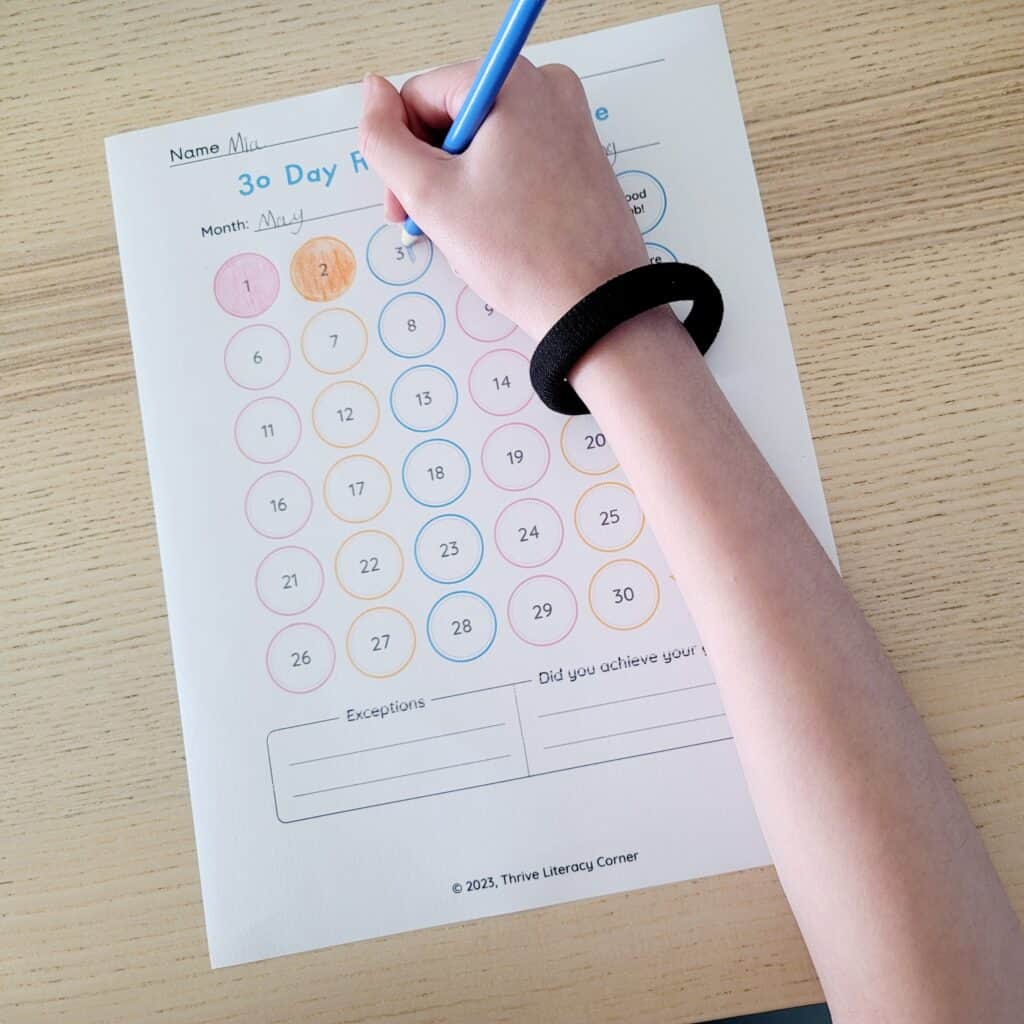Summer Reading Log: FREE Printable!!
This post may contain affiliate links, and I will earn a commission if you purchase through these links. Please read the disclosure policy for more details.
Summer is the perfect time for children to relax and take a break from the rigors of school. However, it’s also essential that they continue to engage in educational activities to prevent the “summer slide” – a decline in reading ability and academic skills during the summer months. One effective and enjoyable way to accomplish this is by using summer reading logs, which encourage children to read regularly and track their progress.
Reading logs come in various forms and can be tailored to suit any child’s interests and reading level. By participating in summer reading programs or taking advantage of free printable summer reading logs, children can set reading goals and stay motivated throughout their summer break. Parents can also play a vital role in supporting their child’s reading habits by being role models and providing a variety of reading materials to choose from.
Maintaining a consistent reading schedule during the summer months not only helps children retain their skills but also fosters a lifelong love for reading. By using a summer reading log, children are more likely to stay engaged, develop their reading skills, and explore new genres and authors, making the most of their summer break.
Grab FREE printable reading logs by subscribing to my list!
*Most school spam filters block my emails, so please use a personal email.

Importance of Summer Reading
Avoiding Summer Slide
One of the main reasons why summer reading is important for kids is to avoid the “summer slide.” This is a term used to describe the loss of learning that can occur during the summer months when children are out of school. Research shows that an average student loses 17-34% of the prior year’s learning gains during summer break 1.
However, reading just five books over the summer can help prevent learning loss 2. By encouraging kids to read during their summer break, they can stay engaged with their learning and retain more skills for the upcoming school year.
Supporting Learning
Another significant benefit of summer reading is that it supports children’s ongoing learning and education. Reading over the summer not only helps kids maintain their skills, but also contributes to their overall development.
For instance, by reading consistently, students can expand their vocabulary 3. It is estimated that a student who reads for 20 minutes a day will hear about 1.8 million words per year 4. In addition, summer reading provides opportunities for children to build background knowledge that they might not encounter during the regular school year 5.
All of this contributes to improving their reading fluency and comprehension.
Encouraging Motivation
Lastly, summer reading can help children develop the motivation to be lifelong learners. When parents, educators, and librarians emphasize the importance of reading during the summer months, kids are more likely to view reading as a fun, worthwhile activity. By participating in summer reading programs, reluctant readers can be drawn in, helping them discover the joy of stories 6.
Moreover, summer reading can foster social-emotional development, allowing children to connect with characters, explore different cultures, and engage with important life lessons. As a result, kids return to school more motivated and eager to learn, with a genuine desire to continue their education well beyond the classroom.

Creating a Summer Reading Log
Choosing Books
When creating a summer reading log, it’s crucial to choose the right books to keep your child engaged and entertained. Selecting a mix of genres helps to expose them to various aspects of literature and encourages them to explore for their interests. Take your child’s age, preferences, and reading level into consideration while selecting books. You can also seek recommendations from teachers, online resources, or even the local library.
Some kids may be resistant to reading anything other than the one genre they already like. I have also seen parents get upset that their child only wants to read graphic novels. This is okay! Encourage them to read whatever it is they want to read. The important thing is that they are reading. It really doesn’t matter what they read. You don’t want to make this into a power battle and possibly ruin the fun of reading for them.
Setting Goals
Setting attainable goals is an essential part of creating a successful summer reading log. A realistic goal can be a specific number of books to read over the summer or the number of minutes spent on reading per day. While creating goals, consider factors like your child’s reading ability, available time, and interests.
If you’re a parent, monitor and adjust goals as needed to keep your child motivated throughout the season. It’s crucial to maintain a balance by challenging them yet not making it too difficult.

Incorporating Activities
To boost the enjoyment of the summer reading experience, you may decide to incorporate activities that complement the books read. These activities could include:
- Discussing the books together after reading: Talk about the characters, plot, and themes of each book when your child finishes reading it. This encourages comprehension and critical thinking skills.
- Creating a visual progress tracker: Use a calendar or a printable reading log and encourage your child to mark the days they completed reading.
- Participating in a reading challenge: Join a local or online reading challenge to create a sense of accomplishment when goals are met.
- Find a craft or activity based on the book that your child can work on.
Integrating a variety of activities helps to make the summer reading log more engaging and enjoyable, setting your child up for success while preventing the summer slide. Remember to be supportive and flexible as your child navigates this reading journey.

Printable Summer Reading Logs
Printable summer reading logs are a fantastic way to encourage kids to read more and develop good habits during the vacation months. These logs come in a variety of formats, suitable for children of different ages and reading levels.
You can download a few free options by signing up for my email list below. These include a 30 day reading challenge, 2 regular reading logs where students list the books, 2 book review/summary forms, and a summer reading log so that you can choose the one that works best for your situation.
Overall, printable summer reading logs are an enjoyable way to keep kids engaged with reading during the warmer months. They can track their accomplishments and discover new books, while parents can encourage and support them in their reading journey.
Sources
- (https://readonarizona.org/resources/summer-reading-program/)
- (https://readonarizona.org/resources/summer-reading-program/)
- (https://www.teachhub.com/professional-development/2020/06/summer-reading-why-its-important/)
- (https://www.teachhub.com/professional-development/2020/06/summer-reading-why-its-important/)
- (https://www.readingrockets.org/calendar/summer)
- (https://libguides.ala.org/summer-reading/benefits)








